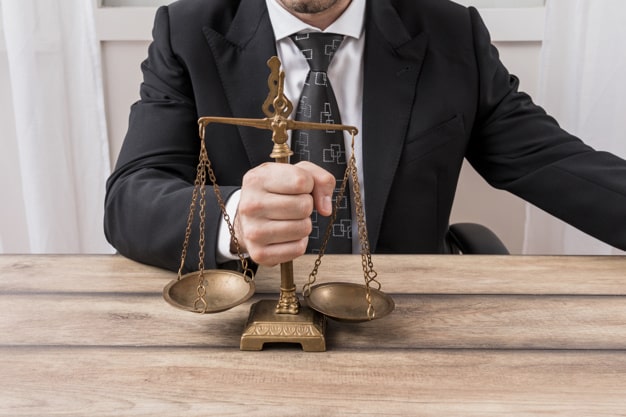Los Angeles Disturbing The Peace Lawyer
What is Disturbing the Peace?
The expression “Disturbing the Peace” is a part of our common vernacular through movies and television, but the specific acts which define “disturbing the peace” may surprise you.
Consider the three “Disturbing the Peace” crimes recognized by the California Legislature. You can be charged with disturbing the peace for various reasons which range from an argument, a physical fight, or using offensive words.
California Penal Code Section 415 breaks Disturbing the Peace into three different sections governing fighting, dealing with noise, and addressing offensive words in public.
In California, there are three circumstances in which disturbing the peace occurs:
- when people fight unlawfully in public,
- when a person disturbs someone else with loud and unreasonable noise, or
- when someone uses offensive words that are likely to provoke a violent reaction.
The term disturbing the peace is a catchall term. While some states call it disorderly conduct, California calls it disturbing the peace, which is a misdemeanor crime.
It is not as serious of a charge as a felony but any conviction carries consequences beyond fines and time served in jail, including impairing your ability to obtain housing or be hired for a job. When an employer or landlord conducts background checks on you they may see the charge.
What Constitutes Disturbing the Peace in California?
Unlawful Public Fight
California Penal Code section 415 (1) makes it a crime for “Any person to unlawfully fights in a public place or challenge another person in a public place to fight.” This is a crime similar to a battery.
It is generally used as a basis for arrest and charge when two people engage in a fight and when it is completely unclear who initiated the fight and who was acting in self-defense.
This is a common situation in bar brawls where all the witnesses are intoxicated.
Loud and Unreasonable Noise
California Penal Code section 415(2) makes it a crime for “Any person to maliciously and willfully disturbs another person by loud and unreasonable noise.”
This is the crime of partying too hard. Frequently, this charge arises where either a new neighbor moves into a neighborhood where loud noise is common and the new neighbor doesn’t like it, or a person moves into a quiet neighborhood and continually hosts parties with loud noises.
While generally, people are warned several times by law enforcement before an arrest or citation for this charge is made, a police officer may make an arrest the first time they are called to the scene.
Whether a person is arrested or prosecuted is almost always contingent on the cultural sensitivity of the officer and the prosecutor.
Examples of loud and unreasonable noise include:
- A couple holding a party in their backyard which includes playing very loud music. One of their neighbors calls the police. They could be charged with disturbing the peace under California Penal Code section 415 (2).
- A man blasts the stereo in his backyard loudly late at night, and one of his neighbors calls the police. He could be charged with disturbing the peace.
Fighting Words
California Penal Code section 415(3) makes it a crime for “Any person to use offensive words in a public place which are inherently likely to provoke an immediate violent reaction”
A long line of Supreme Court cases dating back to Chaplinksy vs. New Hampshire, (1942) 315 U.S. 568 have established that “fighting words,” or “words that inflict injury or tend to excite an immediate breach of the peace,” are not protected under the First Amendment and may subject the speaker to criminal sanction.
The Supreme Court observed in Chaplinsky that “Such words are of such little expositional or social value that any benefit they might produce is far outweighed by their costs on social interests in order and morality.”
A common example would be shouting racial or ethnic slurs against religious or racial minorities. Such conduct is, predictably, likely to cause an immediate breach of the peace and will not likely be protected by the First Amendment.
Which are the Elements
Under California Penal Code section 415, actions that result in a charge of disturbing the peace include playing music at a volume high enough to disturb your neighbors, challenging someone else to a physical fight, or using ethnic/racial slurs in a verbal argument.
To convict a person of disturbing the peace, the prosecutor must prove the following beyond a reasonable doubt:
- They challenged someone to fight or they fought with someone.
- They intended to do what constitutes breaking the law.
- They were in a public place when the fight or the challenge to fight occurred.
What are the Penalties for Disturbing the Peace in Los Angeles
Disturbing the peace is a misdemeanor offense. If convicted, someone could receive up to 90 days in county jail, a $400 fine, or both jail time and a fine. However, a disturbing peace charge could be reduced to an infraction.
If you or someone you care about has been charged with disturbing the peace in California, our skillful and experienced Los Angeles criminal defense lawyers can devise a defense strategy that will enable you to avoid a conviction or, at the very least, minimize the penalties you will receive if convicted.
What are the Defenses
There are four defenses for disturbing the peace in California: no criminal intent, the behavior was constitutionally protected, falsely accused, and self-defense.
No Criminal Intent
Under California Penal Code section 415, a person is guilty of disturbing the peace if they acted willfully, maliciously, or with the intent to cite violence. It is a defense for someone accused of disturbing the peace to show that they acted without this intent.
For example, a person involved in an ongoing dispute with their neighbor plays very loud music late at night to get back at them. The neighbor calls the police and complains about the loud noise, wanting their neighbor to be charged with disturbing the peace.
However, the person playing the music explains to the police that they are celebrating their wedding anniversary. They apologize and promise to lower the volume of the music. Since the person did not have malicious intent for playing loud music, disturbing the peace charge may not be successful.
Behavior was Constitutionally Protected
Someone accused of disturbing the peace is not guilty under California Penal Code section 415 if their words are protected by First Amendment free speech laws.
For example, ff a person used offensive words while participating in a political protest, the defense that their behavior was constitutionally protected. Similarly, if a person made a political speech at a loud protest and the noise from it disturbed residents they could also use the defense that their behavior was constitutionally protected as they were exercising their rights to assembly and free speech.
Falsely Accused
A person can use the defense that they were falsely accused of disturbing the peace if facts back it up.
For example, someone has a dispute with a neighbor and resorts to getting revenge by accusing them of disturbing the peace late at night with loud music. The person accused of disturbing the peace can claim that their neighbor falsely accused them if they did not play loud music late at night. If the person was arrested and claims they were falsely accused, the charges may not stand up in court.
Self-Defense
It is legal for someone to defend themselves in California as long as they believe they were in danger and it was necessary to use force to stop the attack. The disturbing peace charge may be dropped if the defendant’s actions fall within the legal bound of self-defense.
For example, a woman is walking home and a man grabs her. She pushes him off and hits him. She is not guilty of disturbing the peace because she did not willfully hit her attacker and acted in self-defense. Or if a man is approached at a bar by another man who acts like he is going to hit him in the face, he can claim self-defense if he pushes the man away so he will not be hit.
Call An Experienced Los Angeles Disturbing The Peace Lawyer
If you are charged with disturbing the peace in Los Angeles, you should immediately contact an experienced disturbing the peace lawyer like those at Manshoory Law Group, APC to help you in analyzing the facts of your case, preparing and presenting defenses before and during the trial, and ensuring that you understand your rights and helping you enforce them.
Call now for a free consultation, so that Manshoory Law Group can help put the odds back in your favor.
FAQ
Is Playing Loud Music A Crime?
California Penal Code section 415 defines disturbing the peace as disturbing the peace of another person by loud and unreasonable noise, which could include music.
Is Disturbing The Peace A Crime In California?
Disturbing the peace is a crime under California Penal Code 415, which defines it as disturbing the peace of another with a loud noise, fighting in public or threatening to fight someone, and using offensive words that are likely to provoke a violent reaction.
What Classifies As Disturbing The Peace?
California Penal Code section 415 classifies the crime of disturbing the peace as occurring under three circumstances: 1) when people fight unlawfully in public, 2) when a person disturbs someone else with loud and unreasonable noise, or 3) when someone uses offensive words that are likely to provoke a violent reaction.
Can You Go To Jail For Yelling At Someone?
Yelling at someone in and of itself is not a crime. However, if you yell racial slurs at someone or challenge them to a fight when yelling, you could be charged with disturbing the peace.
Is It Illegal To Disturb The Peace?
Disturbing the peace is illegal under California Penal Code Section 415. You can be guilty of disturbing the peace if you disturb someone with intentionally loud and unreasonable noise, fight in a public place, or use offensive words in a public place that are likely to result in a violent reaction.
What Is The Difference Between Disorderly Conduct And Disturbing The Peace?
One of the main differences between disturbing the peace and disorderly conduct in California is the punishments. Disturbing the peace is punishable by up 90 days in jail and a fine of $400. A disorderly conduct violation is punishable by up to six months in jail and a $1,000 fine.



